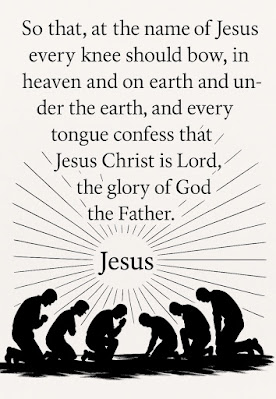We live in a world drowning in violence—political violence, religious violence, ideological violence. Everyone selects their “side” and then baptizes it with Scripture.
Yet the Bible does not hide violence; it exposes it. In Heidegger’s language, truth is unconcealment—bringing what is hidden into the open. And Scripture’s final unveiling is precisely that: the apocalypse is an exposure, not an escalation.
This is why Revelation 19 is so misunderstood.
The Messiah does not come with a sword in His hand.
He comes with a sword from His mouth—a word that unmasks and disarms the violent powers.
“And out of His mouth came a sharp sword…” (Rev. 19:15)
This is not the return of Joshua. This is the revelation of Jesus of Nazareth—the Word who exposes the false securities of empire, nationalism, religious arrogance, and fear. He the Christ/Messiah conquers not by shedding the blood of others but by exposing the systems that survive on deception.
In Torat Edom, violence is the pathology of Esau gone unhealed—power without repentance, strength without compassion, inheritance without covenant. The whole Western world, as Jewish tradition often notes, bears the marks of Edom: the drive to conquer, to secure by force, to preserve blessing through domination. But the Messiah does not affirm Edom’s sword—He heals it and as Jacob after wrestling Yeshiah Sar Haphanim the brothers embrace each other in forgiveness.
This is the prophetic path:
• swords into plowshares
• nations no longer learning war
• the earth filled with knowledge of the Lord (Isaiah 11:9)
In other words, the Messianic Age arrives not through violent victory but through revelation—through the knowledge of God flooding the earth.
A Parable From Papua New Guinea
The late missionary Don Richardson’s Peace Child offers a living illustration of this while serving among the Sawi people, where treachery was virtue, and violence was woven into honor. No law or army could change that. But hidden within their culture was a symbol—the giving of a “peace child” to end conflict. When Richardson recognized this, he announced Jesus Christ as the ultimate Peace Child, the gift that ends the cycle of betrayal.
Violence collapsed not because someone imposed force from the outside, but because a deeper truth was unveiled from within. That is Revelation 19 in real time: the sword of truth dismantling the sword of blood.
Torat Edom and the Healing of the Nations
Torat Edom insists that eschatology cannot be built on Christian nationalism or secular Zionism—or any ideology (political) nor idealogy (philosophical or religious) that sanctifies violence. All of these are expressions of unredeemed Edom, the sword before it is transformed. We need its mirror to shine Jesus’ light!
The Rider on the white horse exposes every system—Jewish, Christian, Muslim, Western, Eastern—that clings to power through fear. The Messiah speaks, reveals, uncovers, and in doing so, breaks the world’s addiction to force.
This is why His robe is dipped in His own blood, not the blood of His enemies.
This is why His kingdom is not of this world.
This is why He conquers through the Word, not the sword.
And this is why the Messianic Age is described as an age of knowledge, not warfare.
The Path Forward
The Messianic Age is not about whose nation triumphs.
It is not about borders, armies, or competing narratives of chosenness.
It is about all nations being drawn into the knowledge of God,
as the waters cover the sea.
This is the healing of Edom—
the repentance of the West,
the humbling of power,
the restoration of brotherhood,
and the unveiling of the Peace Child
whose Word disarms the violent impulse in every tribe and nation.
The sword from His mouth (Hebrews 4:12) is the final exposure of violence and the first breath of a restored creation.









